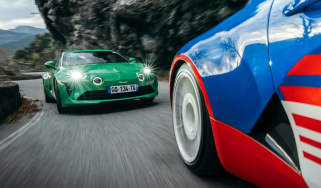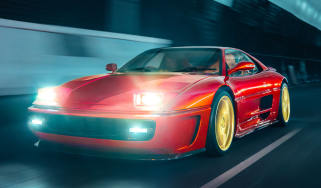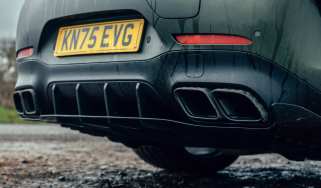Ferdinand Piech (1937-2019)
Dr. Ferdinand Piech has died, aged 82, leaving a remarkable legacy of commercial success founded on engineering excellence

The death of an 82-year old German automotive industry executive wouldn’t normally warrant more than a sentence or two in evo, but Dr. Ferdinand Piech was no ordinary industry chairman. In fact, he could quite possibly have been the most evo man in the car industry.
Ignore the shared platforms, drivetrains and components; the cross-brand family of models that nearly take badge engineering a step too far, and instead consider what Piech stood for. While those who head up rival manufacturers are predominately from a sales and marketing background, Piech was first and foremost an engineer fascinated with new technology and always looking for an advantage over a competitor.
His product back catalogue is an embarrassment of riches, crammed with gems of the kind that any Chairman or CEO would be content to have just one of on their CV. How many of Piech’s rivals can claim to have built a Le Mans winner, brought the most aerodynamically efficient car of its time to market and made a wealth of pioneering technology available to the masses? Who else could set their engineers the task of building the fastest, most powerful production car of all time and tell them not to come back until it was done?
Early in his career Piech showed signs that settling for second best was never going to be an option. When he worked in Porsche’s motor sport department and wanted his Grandfather’s company to win Le Mans, he fought against using the company’s 2-litre flat-six production car engine and got the go ahead for a 4.5-litre flat-12 racing engine together with a chassis and body to put it in. And when the FIA inspectors came to check on progress of Porsche’s new sports car, instead of the usual two or three finished cars and the same number again in various states of build, Piech made sure all 25 required for homologation were built and lined up for inspection.
A switch to Audi saw Piech focus his attentions on winning-over BMW drivers by injecting performance and ground-breaking technology in to the sector. He used four-wheel drive to not only claim victory on the stages of the World Rally Championship, but to give the company’s less fashionable saloon cars a USP over their Bavarian rivals. While others in the sector were happy to play follow my leader, Piech always wanted to be the leader.
It was Piech’s determination to innovate, lead, and push the VW Group’s brands to compete head-on with each other that appeals to evo. Every brand he has added to the VW portfolio is stronger because of it. Before Audi took control of Lamborghini you couldn’t think of a more inappropriate owner – a German salon car manufacturer having control of an Italian supercar company just shouldn’t work. And yet the Gallardo was an evo favourite from day one and the Huracan is working its way into our affections in a similar way. The Aventador is a supercar only Lamborghini could make: mad, bad and dangerous to know but utterly appealing.
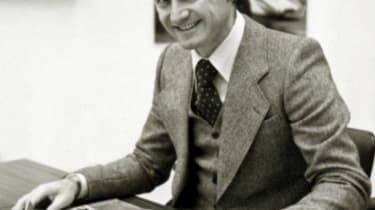
Then Audi went and built a rival to the Gallardo and the VW Group offered us two brilliant mid-engined super cars at the same time, each benefiting from a combination of shared knowledge and the rivalry to build the better car.
Let us also not forget that it was the sanctioning of a group SUV project by Piech that allowed Porsche to cash-in, produce the likes of the Carrera GT and ultimately make the return to Le Mans. And it is motor sport where Piech’s record is perhaps strongest. Fiercely resisting Formula 1, he has pushed the VW Group’s brands in multiple disciplines: one make racing, DTM, GT racing, the World Rally Championship and, of course Le Mans. Under Piech’s stewardship VW Group entries have won Le Mans 14 times from the last 15 races. And when Porsche returned there was no Audi withdrawal, instead both brands were actively encouraged to slug it out for victories. While other Groups keep their brands safely separated, under Piech’s stewardship it was very much a case of if you can’t beat an in-house rival how do you expect to beat an external one?
The top 5 cars of the Piech era
Porsche 917
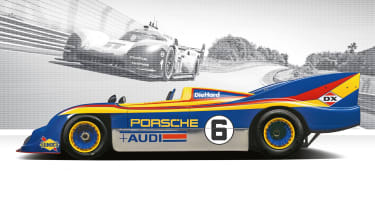
Not only one of greatest racing cars of all time, if not the greatest, Piech’s 917 showed just how much further he was prepared to go than others. Its development pushed Porsche’s finances to the limit and the factory drivers refused to race the early examples due to their instability at high speed caused by Piech’s fascination with aerodynamics. It took a rule change outlawing the 917 to stop it from dominating every series it entered.
Audi Quattro
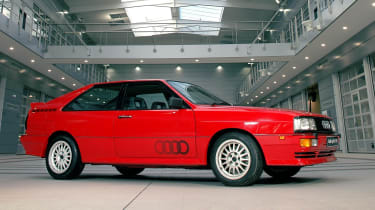
When he joined Audi Piech’s goal was to take on BMW and so he embarked on an aggressive engineering-led agenda. The most famous of these was taking four-wheel drive technology and installing it into a sports car, in this case the humble 80 coupe. The resulting Ur-Quattro showed Piech’s engineering led philosophy and gave the company a technological advantage over its rivals. While the 100 saloon, the most aerodynamic efficient car of its time showcased his fascination with aerodynamic efficiency.
Volkswagen Golf mk4
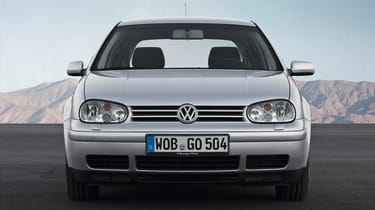
There is little dynamically to attract the evo reader to the Mk4 Golf, but this humble hatchback showcased the fanatical attention to detail brought by Piech. When Ford first saw the VW’s fixtures and fittings it hastily threw a cover over its then new Focus’ interior as it frantically worked towards upping the quality. But there was more to the Mk4 than its flush moulded interior, it provided the bedrock of quality the VW Group has traded on ever since.
Bugatti Veyron
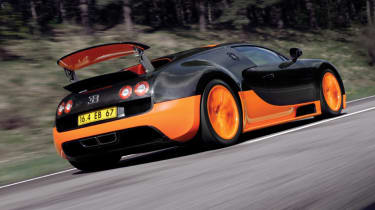
In today’s world of hybrid hypercars the Veyron is often overlooked, but here was a record-breaking supercar from a company that also made a Skoda Fabia and a MAN truck. Considering that Piech charged Bugatti’s engineer’s to build a 1000PS, 250mph supercar that could be as easy to drive as a VW Golf, and that they did it, cannot and should not go unrecognised.
Volkswagen L1
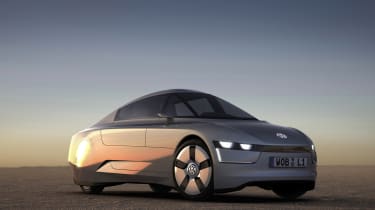
On his retirement from the role of Chairman of Volkswagen AG, Piech’s engineers presented him with the L1: a carbon bodied, two-seater tandem car that could travel 100km on 1-litre of fuel. The project represented everything Piech strove for in his engineering career – lightweight, efficient and technology led. The car was more than a parting gift, however, in 2011 the XL-1 was put into limited production.

